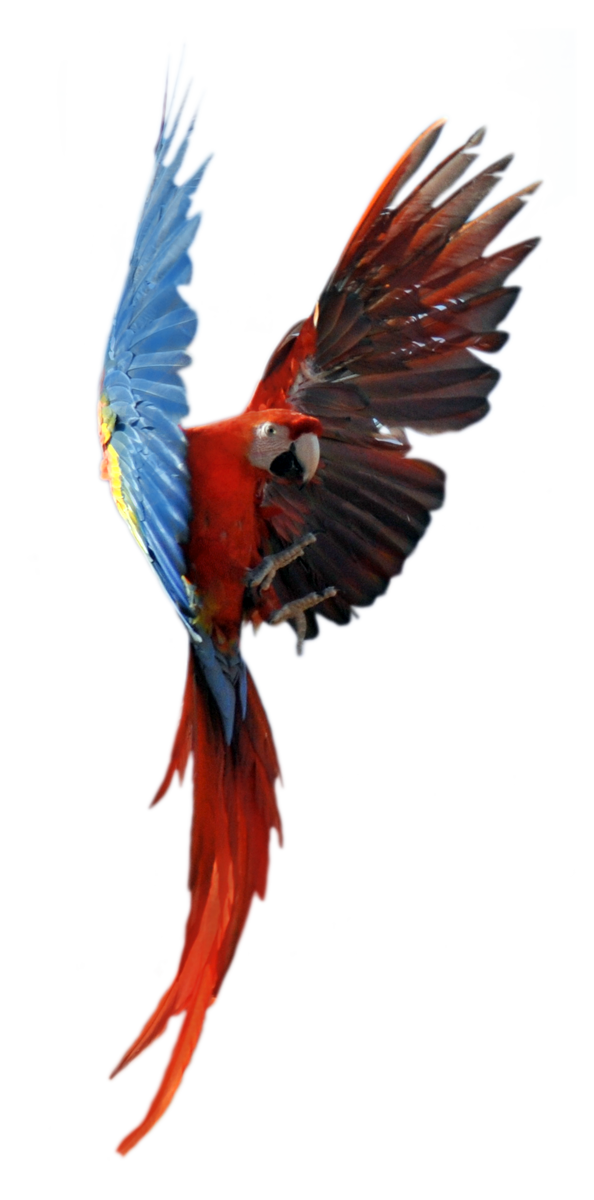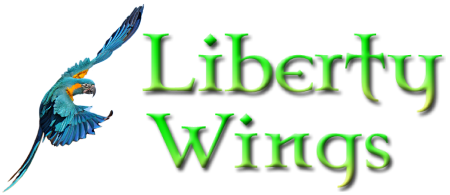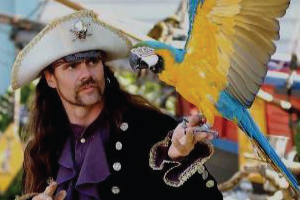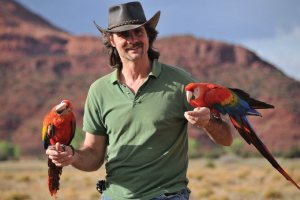
The Sunset Roost
Written by Chris Biro, Copyright 8-23-2008
A freeflight list member wrote: “Chris can give you his thoughts on this, but I have to agree with what he said to me. He felt there was a biological imperative to roost and my birds sure acted like they were driven to find someplace. They flew by my house high in the sky in the light from the setting sun while I stood in the darker area on the ground.”
Parrots have excellent vision during the daylight hours – actually they see more colors than we do. That is why they can at high speeds fly through dense trees and still have their eyes intact as they come out the other side, they can see all those little branches. But their night vision is not that different than ours, at least it is not anything like an owls. So when they have to fly at night and thus land in a tree in the dark, they run the risk of poking out their eyes. Obviously they do not want this. Thus they do not do much flying at night. Near the equator where many species of parrots come from, the sun sets very quickly. There are no lingering sunsets like we have here in the northern part of the US. Near the equator if you want to catch a photo of the sunset you need to have your camera ready because you don’t have much time. So when it starts to get dusk, parrots understand they need to get to where they are going to spend the night, like right now. I am sure they do not wish to get caught still flying once it starts getting dark. This is a very strong inherent interest of theirs, to get to roost prior to dark. From what I have seen the cut off signal seems to be the sun setting.
 At our place in Moab, we have a huge cliff behind the house which the sun sets behind about two hours before normal sunset time. The calicos have repeatedly demonstrated that if I fail to call them inside before the sun drops over that cliff, and the shadow reaches our house, they will NOT come down. Even though there is still many hours of daylight left, they are not coming down once the sun disappears from their sight. Even if they sit in a tree and can still see the sun but I on the ground cannot, they are not flying down to me in the shadow. This has been a very odd thing to get used to. I have a few times missed this cut off time by just a few minutes and been grumpy because they would not come down. Their recall during the day is fantastic, but after the sun drops over that cliff their recall is horrible, actually pretty much does not exist.
At our place in Moab, we have a huge cliff behind the house which the sun sets behind about two hours before normal sunset time. The calicos have repeatedly demonstrated that if I fail to call them inside before the sun drops over that cliff, and the shadow reaches our house, they will NOT come down. Even though there is still many hours of daylight left, they are not coming down once the sun disappears from their sight. Even if they sit in a tree and can still see the sun but I on the ground cannot, they are not flying down to me in the shadow. This has been a very odd thing to get used to. I have a few times missed this cut off time by just a few minutes and been grumpy because they would not come down. Their recall during the day is fantastic, but after the sun drops over that cliff their recall is horrible, actually pretty much does not exist.
 So if you are looking for a loose bird, just know that even if you find them, if it is close to dusk, they may not come down. Not because they don’t want to but because they have very good reasons to feel safe right where they are, at least until after sun up.
So if you are looking for a loose bird, just know that even if you find them, if it is close to dusk, they may not come down. Not because they don’t want to but because they have very good reasons to feel safe right where they are, at least until after sun up.
A list member asked “One question, could this ‘natural behavior’ be somehow changed by our city schedules?! I mean, if you have a loose bird on the city, could the city lights influence this somehow?! Add on this formula our home schedules, the ones our birds are more used to. I thought on this while Inca and Darwin were out…”
Parrots can learn to fly at night and sometimes can be spooked to fly at night even if they are not comfortable doing so. I too have several times seen one of my birds fly in both near darkness and total darkness. But this is not their normal habit. When I lived in Morton Washington, back when I first started this list, I actively worked to teach my Mitreds to fly to the front door from the aviary in the dark. I started flying them later and later as it got darker and darker. They were willing to make this flight even on very dark nights. But I never saw them fly in the dark at any other time. It seemed to me that they learned to fly in the dark at that particular route, start near aviary to destination front porch but did not generalize this for other conditions. I have always assumed the reason was due to their lack of vision. It is just too dangerous to go flying around in unknown areas after dark. If a loose parrot is flying after dark, something exceptional is involved and they are doing so because they feel compelled by some greater fear.
Parrots: more than pets, friends for life.Chris Biro
Resources and More
The Pirate's Parrot Show
An educationally based pirate-themed parrot show performing at state and county fairs since 1991. The Pirate’s Parrot Show is a Fun, Educational, and Interactive experience for all ages and cultures.
Bird Recovery International
One in every eight bird species in the world today is in danger of extinction and these numbers are increasing! Find out how this non-profit organization started by Chris Biro can help save and protect parrots and other birds.
Podcasts with Chris Biro
An Alternate Perspective – Enjoy these audio Podcasts of Chris with guests discussing the nature of training flighted birds. The discussions are intended to be loosely structured around a general topic.
Email Us
chris@libertywings.com
Call Us
(206) 618-2610
Contact Us
By Using the Contact Form




Article Comments